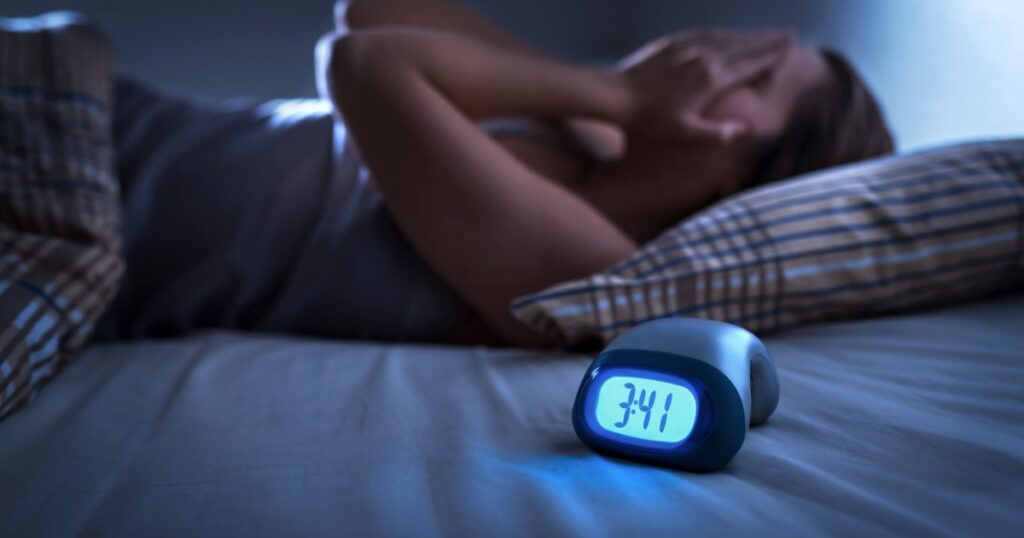Every medication, regardless of its intended use, comes with some risks. Unfortunately, they aren’t always apparent right away. In some cases, doctors only learn about the risks of some medications after patients have already been using them for some time.
Benzodiazepines and anticholinergic drugs are common classes of medications. Doctors already knew that some of their side effects were memory and confusion, but research suggests it can be much worse. Over the last five years, studies have shown that many of these medications are linked to Dementia.
What Are Anticholinergic Drugs?

Anticholinergic drugs work by blocking the action of a neurotransmitter called acetylcholine. Acetylcholine is responsible for transferring signals between certain cells that affect specific bodily functions [1].
Blocking acetylcholine prevents involuntary muscle movements in the lungs, gastrointestinal tract, urinary tract, and other areas of the body.
Read More: 7 Signs That Death May Be Near in Someone With Dementia
Anticholinergic drugs can be used to treat the following:

- COPD
- overactive bladder and incontinence
- gastrointestinal disorders, such as diarrhea
- poisoning due to some insecticides and poisonous mushrooms
- symptoms of Parkinson’s disease, such as abnormal involuntary muscle movement
- asthma
- dizziness
- motion sickness
Occasionally, doctors may prescribe anticholinergics as muscle relaxants, and they can be useful to help patients relax during surgery as well [1].
Types

There are more than twenty different types of anticholinergic drugs that doctors prescribe for various purposes. They are:
- atropine (Atropen)
- belladonna alkaloids
- benztropine mesylate (Cogentin)
- clidinium
- cyclopentolate (Cyclogyl)
- darifenacin (Enablex)
- dicylomine
- fesoterodine (Toviaz)
- flavoxate (Urispas)
- glycopyrrolate
- homatropine hydrobromide
- hyoscyamine (Levsinex)
- ipratropium (Atrovent)
- orphenadrine
- oxybutynin (Ditropan XL)
- propantheline (Pro-banthine)
- scopolamine
- methscopolamine
- solifenacin (VESIcare)
- tiotropium (Spiriva)
- tolterodine (Detrol)
- trihexyphenidyl
- trospium
Diphenhydramine (more commonly known as the allergy medication Benadryl) also has anticholinergic effects [2].
What are Benzodiazepines?

Benzodiazepines are also known as tranquilizers. They are used for their sedating effects, to treat conditions like anxiety, insomnia, seizure control, and muscle relaxation. They are some of the most commonly prescribed medications in the United States [3].
Types

There are various types of benzodiazepines. As of 2018, the following are approved in the United States according to RxList.com:
- alprazolam (Xanax)
- chlordiazepoxide (Librium)
- clonazepam (Klonopin)
- clorazepate (Tranxene)
- diazepam (Valium)
- estazolam (Prosom)
- flurazepam (Dalmane)
- lorazepam (Ativan)
- midazolam (Versed)
- oxazepam (Serax)
- temazepam (Restoril)
- triazolam (Halcion)
- quazepam (Doral)
Read More: New Study: Blood Test Can Predict Dementia 10 Years Before Official Diagnosis
Medications Linked to Dementia

As the population ages, understanding how medications might contribute to cognitive decline is essential for both healthcare providers and individuals managing their health. This article will explore the latest research findings on medications linked to dementia, examining how different types of drugs may impact brain health and cognitive function. By shedding light on these connections, we aim to inform and guide better decision-making for patients and clinicians alike.
Anticholinergics

Over the past five years, a number of studies have linked some anticholinergic drugs to an increased risk for dementia. First, a 2015 study from the University of Washington determined that patients who chronically used certain anticholinergic drugs were more likely to develop dementia. The researchers looked at the most commonly used anticholinergic drug classes, including antidepressants, first-generation antihistamines, and bladder antimuscarinics.
The study involved 3 434 patients aged 65 and older, none of whom had dementia before it started. The researchers followed up with the participants after an average of 7.3 years. During that time, 797 (23 percent) of those participants developed dementia, and 637 of them developed Alzheimer’s [5]. The following year in 2016, Indiana University School of Medicine Researchers used brain imaging to detect how these drugs impact the brain. This was the first study to investigate the association between anticholinergic drugs and biomarkers of brain metabolism and atrophy.
At the end of the study, the 52 participants who were taking at least one anticholinergic drug showed lower scores on memory and cognition tests than those who were not. The researchers also noted changes in the physical structure of the participants’ brains. These changes included reduced total cortical volume and reduced temporal lobe thickness. Changes such as these affect memory and cognitive function [6].
Benzodiazepines

Anticholinergic medications aren’t the only ones linked to Dementia. Researchers have found that another class of drugs, called benzodiazepines, also has links to dementia and Alzheimers. In one study, a team of researchers identified nearly two thousand men and women over the age of 66 with an Alzheimer’s diagnosis. They then selected seven thousand others without Alzheimer’s who matched the age and gender of those with the disease.
The researchers looked at the drug prescriptions during the five or six years before the participants were diagnosed with Alzheimer’s. They found that people who had taken a benzodiazepine drug for three months or less had the same dementia risk as those who had not taken any at all. However those who took benzodiazepines for three to six months had a 32 percent greater risk for Alzheimer’s. Individuals who had taken a benzodiazepine for six months or more had an 84 percent greater risk [4].
Read More: 10 Ways Photos Help With Dementia Care
Are there Alternatives to Anticholinergic Drugs?

As previously stated, these types of drugs are often prescribed for insomnia, anxiety, allergy symptoms, and incontinence. If you struggle with any of these health issues there are alternatives to anticholinergic drugs that could help. If you are experiencing any symptoms or wish to discuss different medications you should consult with your physician.
Insomnia

Medications that are often prescribed for insomnia include Elavil, Benadryl, Doxepin, Hydroxyzine, Seroquel, and Trimipramine. All of these have anticholinergic effects. Other common sleep aids that have similar problems are Zzzquil, Tylenol PM, Advil PM, and any other containing Diphenhydramine.
If you are taking any of these medications, consider talking to your doctor about alternatives that don’t increase your risk of dementia symptoms. This is especially true if you’re taking medications for other health problems as well, since taking multiple medications could increase your anticholinergic burden [7]. Melatonin is one possible alternative to traditional insomnia medication [4].
Anxiety

Many commonly prescribed anti-anxiety medications, including benzodiazepines, Xanax, Ativan, and Valium, can increase your risk for dementia over time.
Some possible alternatives include:

- bupropion (Wellbutrin)
- buspirone (BuSpar)
- citalopram (Celexa)
- fluoxetine (Prozac)
- sertraline (Zoloft)
- venlafaxine (Effexor) [4]
Alternatives to anticholinergic allergy medications such as Benadryl include:

- cetirizine (Zyrtec)
- desloratadine (Clarinex)
- fexofenadine (Allegra)
- loratadine (Claritin) [4]
Incontinence

While there are not many incontinence drugs on the market that do not have anticholinergic properties, there are some procedures that could be done to improve your condition. They include botox injections, and implantable bladder stimulators. Of course, you should discuss these options with a doctor first [4].
Are there Non-Pharmaceutical Solutions?

In many cases, there are treatment options available that do not include taking medications of any kind. While there is a time and place wherein drugs may be necessary, consider other forms of therapy before beginning a drug regime.
Read More: 7 Strategies When Caring for Someone With Dementia
Allergies

One 2010 study found that patients who birch pollen honey before the start of allergy season reported significantly fewer allergy symptoms, and twice as many non-symptomatic days [8].
Other alternatives include Neti pots, which can clear sinuses and remove congestion, as well as essential oils like peppermint oil that can help prevent excessive coughing [9]. Bone broth can also help to relieve respiratory symptoms associated with allergies [10].
Insomnia

One possible treatment for insomnia is valerian root. Some studies have shown that valerian root can reduce the time it takes to fall asleep and improve sleep quality. Results have been mixed, however, and there are risks associated with valerian root, so you should talk to your doctor first [11]. Valerian should not be taken in conjunction with other medications that have sedative effects including benzodiazepines.
There are many other ways to help improve your sleep that involve no medication at all. Lifestyle habits that affect sleep are caffeine consumption, exercise, and having a good pre-bed routine that helps you to wind down before you go to bed.
Consider shutting off all screens before bed, dimming the lights, turning the temperature of your room down to between sixty and seventy degrees, and eating melatonin-rich foods like bananas, cherries, ginger, or radishes as a bedtime snack [11].
Anxiety

Lifestyle habits that can reduce anxiety are getting regular exercise, avoiding alcohol, drugs, and caffeine, eating a healthy diet, and getting enough sleep. Meditation, journaling, talk therapy, or spending time with animals are also effective ways to help ease anxiety that doesn’t involve using drugs [12].
Incontinence

Bladder training, physical activity, and pelvic floor exercises can help reduce incontinence. Additionally, if you are overweight or obese, losing excess weight can help as well [6].
Talk to Your Doctor

If you are struggling with any health condition, always talk to your doctor before making any changes to your medications. He or she will be able to discuss with you any possible alternatives, as well as assess the risk to you for the medications you are already taking.
There are very few medications that come with absolutely zero risks, but a doctor can help you evaluate those risks and make the best possible decision for your health.
Disclaimer: This information is not intended to be a substitute for professional medical advice, diagnosis or treatment and is for information only. Always seek the advice of your physician or another qualified health provider with any questions about your medical condition and/or current medication. Do not disregard professional medical advice or delay seeking advice or treatment because of something you have read here.
Read More: Dutch town was built just for people with dementia and it helps uphold their sense of independence
Sources
- https://www.medicalnewstoday.com/articles/323514
- https://www.healthline.com/health/anticholinergics#drug-list
- https://www.webmd.com/mental-health/addiction/benzodiazepine-abuse#1
- https://www.health.harvard.edu/mind-and-mood/two-types-of-drugs-you-may-want-to-avoid-for-the-sake-of-your-brain
- https://www.ncbi.nlm.nih.gov/pmc/articles/PMC4358759/
- https://pubmed.ncbi.nlm.nih.gov/27088965/
- https://insomniaclinic.org/six-sleep-medications-may-cause-dementia/
- https://pubmed.ncbi.nlm.nih.gov/21196761/
- https://pubmed.ncbi.nlm.nih.gov/20488237/
- https://pubmed.ncbi.nlm.nih.gov/29509826/
- https://www.mayoclinic.org/diseases-conditions/insomnia/expert-answers/valerian/faq-20057875
- https://www.medicalnewstoday.com/articles/322396#other-treatment-options

